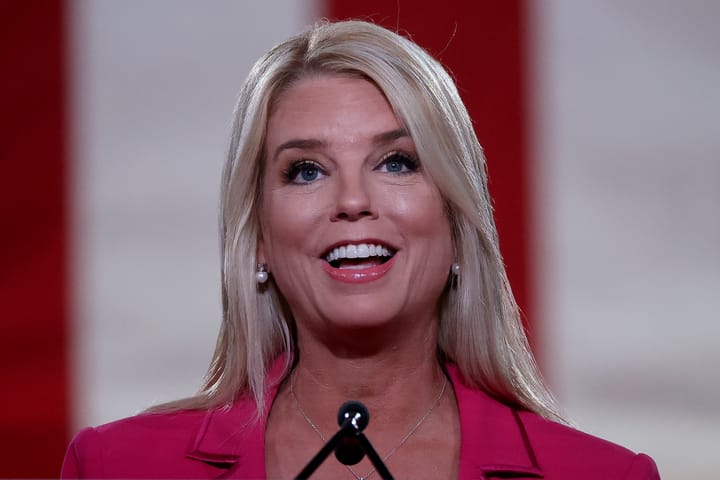This story was produced in collaboration with FAQ NYC, a podcast about New York.
If Tuesday’s attorney general debate in New York is any indication, the front runner in the crowded race to become New York’s next top lawyer is Zephyr Teachout, who was the subject of repeated attacks from the other candidates and is the only candidate who hasn’t received any funding this cycle from New York’s deep-pocketed real-estate sector or from corporate PACs.
Real estate money, which has largely stayed out of recent attorney general races, is betting big this year on New York City Public Advocate Tish James and Hudson Valley Congressman Sean Patrick Maloney, according to Sludge’s analysis of campaign-finance records.
That bet may not pay off, as James, Maloney and Verizon executive Leecia Eve, who’s also received some support from the industry, all aimed their fire during Tuesday night’s debate at Teachout, a law professor and anti-corruption activist who the industry has scorned — and who her foes now seem to perceive as leading the race after she won endorsements from The New York Times and Daily News this month.
New York’s billion-dollar real estate industry, which accounted for a tenth of all the money that entered New York campaign finance system in 2014, has become a petri dish for corruption.
Former State Senate majority leader Dean Skelos and his son were found guilty in 2015 on charges related to using his government office to get his son a job with Glenwood Management, one of New York’s most prominent developers. That same year, Sheldon Silver, the longtime Assembly Speaker, was found guilty of supporting real estate developers interests on rent legislation in Albany in exchange for bribes and kickbacks. In New York City, real-estate developer turned felon and cooperating witness Jona Rechnitz has testified under oath about giving political contributions to have a direct line to New York City Mayor Bill de Blasio and curry favor with his administration. Another de Blasio donor, restaurateur Harendra Singh, pleaded guilty in January to allegations that he used campaign contributions to the mayor to win favorable lease terms for a restaurant Singh owned on city property.
With President Donald Trump— who comes from the world of New York real estate— in the White House, the real estate sector is under some heightened scrutiny. Federal prosecutors and Congress are now investigating whether foreign interests laundered payments to Trump campaign officials through lucrative real estate deals in New York City.
Among the crimes Trump’s longtime fixer Michael Cohen — himself a real-estate investor—pled guilty to earlier this month was delivering fake invoices to a “Manhattan-based real estate company” to cover up the hush payments he made to Stormy Daniels on behalf of President Trump. Cohen also “commenced a deliberate campaign to systematically harass [rent-stabilized Manhattan] tenants out of their apartments using destructive, hazardous, and illegal construction practices,” according to a report from the nonprofit Housing Rights Initiative.
The multi-billion dollar family real estate company previously run by Trump’s son-in-law and Senior White House Adviser Jared Kushner was fined $210,000 by New York City this month for filing paperwork while he was its CEO falsely claiming that buildings it owner were vacant or without rent-regulated tenants (the company has said these were simple errors, and that “In no case did the company act in disregard of the safety of our tenants”). And former Trump campaign manager Paul Manafort, convicted of eight felonies on the same day Cohen delivered his plea, reportedly came within one juror of also being convicted of fraud charges related to his purchase of a Brooklyn brownstone.
Those are all fairly common bad acts in the industry, and ones that have rarely led to serious consequences. It remains to be seen if a new attorney general might begin to enforce those rules more aggressively for bad actors not tied to Trump.
Raking in real estate cash
Maloney, a three-term congressman from Putnam County, has been the largest beneficiary of Big Real Estate’s funding, receiving nearly $338,000 in campaign contributions from individuals and groups with ties to the industry.
Maloney, who is also running for reelection in New York’s 18th district, received a combined $150,000 from eight limited liability companies connected to the Durst Organization, one of New York’s most prominent real estate firms and the co-developers of One World Trade Center.
While Maloney’s attorney general campaign account has received the most contributions from real estate, his congressional campaign account has also reaped contributions from the industry, netting nearly $90,000. Among the contributors to Maloney’s congressional campaign are Douglas Durst, chairman of the Durst Organization, and former New York governor Eliot Spitzer who leads his family’s real estate business, Spitzer Enterprises. Both Spitzer and Durst donated $5,400 to Maloney’s congressional campaign.
“Campaign fundraising has created an unquestionable coziness between politicians and the industries they are supposed to regulate, and that is certainly true of real estate,” Maloney told the podcast FAQ NYC in an email this week. “Obviously, not every politician who takes money from someone is bought and sold.”
He went on to “promise you one thing: when I am attorney general, if those facts tell me you’re committing a crime, I don’t give a damn who you are — shady landlord or real estate billionaire— we are coming for you.”
James, a darling of New York City’s progressives before picking up the support of Gov. Andrew Cuomo in the AG’s race, has taken in roughly $78,000 from nearly two dozen LLCs connected to the real estate industry, including a $10,000 donation by an LLC tied to developer Two Trees, which has a real estate portfolio valued at $4 billion, and a $10,000 donation by an LLC tied to the Durst Organization.
Limited liability companies are subjected to the same $65,100 contribution limit as individuals, which effectively allows LLC owners to circumvent individual and corporate donation limits even as they can obscure the identity of the person providing that money. A single LLC can donate up to $65,100, and a person can easily create multiple LLCs, allowing them to donate virtually unlimited amounts to a campaign, something that has drawn the ire of good government groups and reformers calling for the closure of the “LLC loophole.” James has been a proponent for eliminating the LLC loophole and enacting public campaign financing.
All told, James has received roughly $248,500 in donations from the real estate sector, including a $15,000 contribution from the political action committee spearheaded by the Real Estate Board of New York (REBNY), the influential group that represents developers, building owners and brokers.
REBNY’s PAC donated $15,000 each to James and Maloney, and an additional $5,000 to Eve.
Asked why his group donated to all of the candidates except Teachout, President John Banks said in a statement that “REBNY supports candidates who are interested in advancing smart policies that create good jobs, produce more housing, and lead to the creation of additional tax revenue to pay for vital government services.”
In an email to FAQ NYC, James said that then-developer Donald Trump was emblematic of the issues with New York real estate in “breaking the law and making minor restitution [as] part of the cost of doing business,”
“When the penalties don’t touch the principal, when they don’t threaten the business’s livelihood, breaking the law is just a factor in a cost-benefit analysis,” James told FAQ NYC.
Teachout, speaking on the phone with FAQ NYC’s Azi Paybarah this week, called real estate money the “spine that connects everything from tenant harassment, to tax fraud to Donald Trump” in New York.
“We never really had a New York attorney general who made taking on New York City real estate absolutely central. And to do that, you have to not take real estate money,” Teachout said, vowing to “uncover every rock.… to understand the way in which tax fraud is rampant; understand and investigate really difficult issues of money laundering. These are hard cases to investigate. It takes resources but it has to be a priority because we can’t stand for the corruption that’s coming out of New York City real estate anymore.”
While the attorney general’s office has a bureau designated to examine the real estate sector, it needs to be bolstered, James told FAQ NYC, adding that the state Legislature — which has received millions of dollars over the years in contributions from REBNY and its members— should enact stronger legislation to protect tenants and boost affordable housing.
“Even absent those changes, however, enforcement of real estate abuses must be more aggressive, smarter, and better coordinated. While the existing Attorney General’s office has a real estate bureau and task forces devoted to housing enforcement, it needs to have a bureau dedicated to tenant and homeowner protections,” James said.


